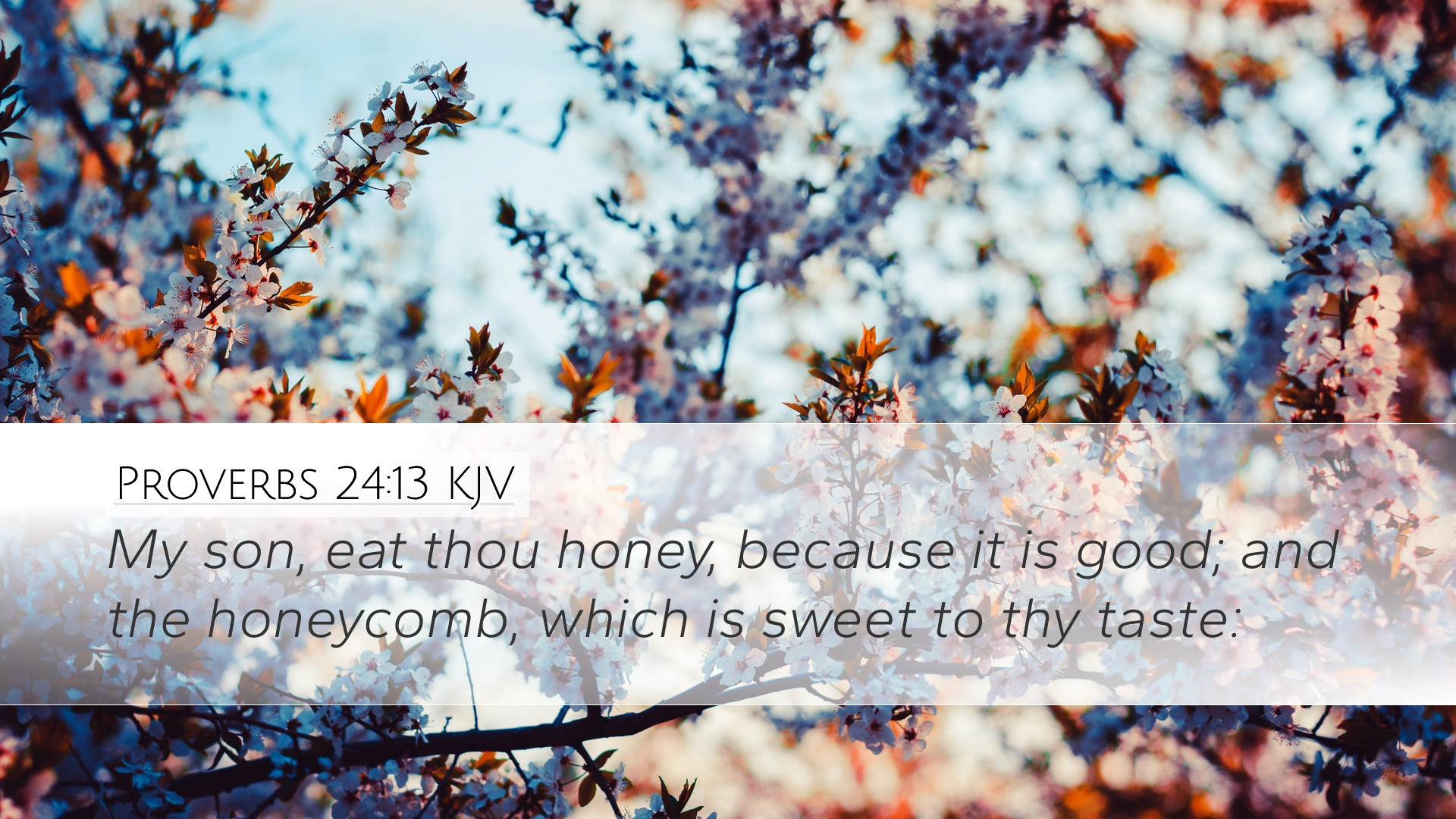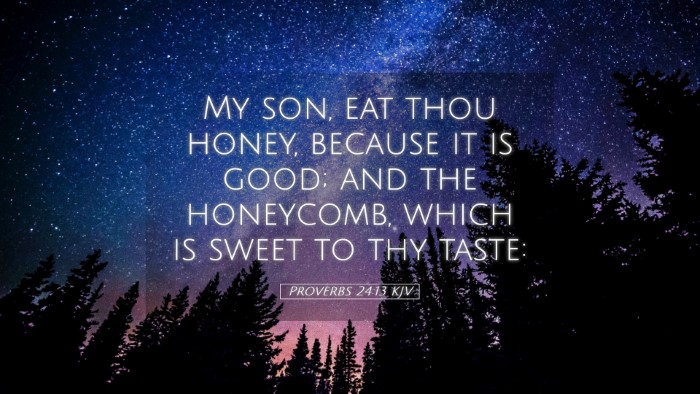Commentary on Proverbs 24:13
Verse: "My son, eat thou honey, because it is good; and the honeycomb, which is sweet to thy taste:" (Proverbs 24:13, KJV)
Introduction
This verse encapsulates a vital principle regarding the enjoyment of God's blessings. Drawing from the insights of prestigious public domain commentaries, we explore the depths of this proverb and its implications for believers today.
Overall Meaning and Context
Having examined the surrounding verses, we see that this proverb emphasizes the joy and value found in seeking out sweet and wholesome things, paralleling the wisdom found in God's Word.
Insights from Matthew Henry
Matthew Henry elucidates that the directive to "eat honey" serves as an exhortation towards embracing the bounties of creation. He suggests that honey symbolizes the rich blessings from God, which should be actively sought after by the faithful.
- Spiritual Honey: Henry deeply reflects on the parallel between honey and the wisdom of God's Word, indicating that just like honey, wisdom is desirable and sweet.
- Application: Encouragement to taste and see that the Lord is good, recognizing that His provisions bring joy and satisfaction to the soul.
Insights from Adam Clarke
Adam Clarke approaches the text with a practical mindset, interpreting honey as not only a delight to the palate but as a metaphor for knowledge and wisdom. He remarks on the inherent need for believers to nourish themselves with knowledge, paralleling the physical sustenance needed for life.
- Value of Knowledge: Clarke emphasizes that wisdom and knowledge are as sweet and nourishing as honey, urging believers to partake in the study of Scripture.
- Balance and Enjoyment: He highlights the importance of moderation and balance in life, much like consuming honey in appropriate quantities.
Insights from Albert Barnes
Albert Barnes views the exhortation in this verse as a fatherly instruction to a son, mingling the physical and spiritual implications. Barnes illustrates how consuming honey aligns with a life lived in pursuit of truth and goodness.
- Fatherly Advice: Barnes interprets the sending of the son to consume honey as a father’s care for his child’s well-being, urging a life in pursuit of wholesome and fulfilling experiences.
- Metaphorical Richness: The metaphor extends to uplifting pursuits in life that bear sweet fruit—both materially and spiritually.
Theological Reflections
As pastores and theologians reflect on this verse, the implications are profound, illustrating a call to savor God's goodness. By God's design, believers are to seek the sweet and nourishing aspects of life, both physically and spiritually.
- Spiritual Nourishment: Just as honey nourishes the body, the Word of God nourishes the spirit, encouraging believers to immerse themselves in Scripture.
- Cultivating Taste for the Good: The verse prompts reflection on developing a taste for righteousness, seeking out experiences that foster spiritual growth.
Application for Today’s Believers
In application, this proverb serves as a valuable reminder for contemporary Christians to actively seek out the sweetness in God's provisions and to engage with His Word.
- Practical Steps: Encourage readers to find ways to incorporate Scripture study into their daily routines, effectually 'tasting' the sweetness of God's wisdom.
- Community Engagement: Suggest that sharing the 'honey'—the blessings and teachings gleaned from Scripture—within their community strengthens the body of Christ.
Conclusion
Proverbs 24:13 challenges believers to appreciate and seek out the sweetness in life. The insights from well-regarded commentaries enrich the understanding of this proverb, providing theological depth and practical guidance. Let us embrace the honey of God's goodness and share its sweetness as we journey in faith.


